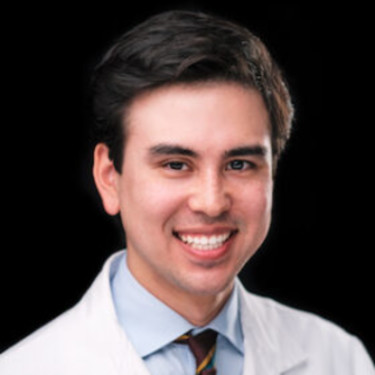Growing up, I was convinced that I required more sleep than the average person. I hated waking up early. I was perpetually late to school when I had to drive myself. I could function on limited sleep when I had to, but I would feel off for the rest of the day. This belief continued through college and the first half of medical school. I can count on one hand the number of times I pulled an all-nighter. I studied on my own schedule so I could sleep until whenever. I lived comfortably in this bubble I had crafted for myself — and then third year of med school arrived.
In M3, life was significantly different. For the first time I was forced to abide by a lifestyle that approximated that of my future career. I knew when I entered medical school that I wanted to do something surgical, and this was only confirmed by clinical rotations. In the back of my head, I realized that this choice meant sacrificing significant free time and hours of sleep. This obviously didn’t alter my decision to ultimately match into neurosurgery — I really couldn’t see myself doing anything else — but the internal struggle would nonetheless pop up from time to time.
Starting residency, however, gave no time to debate these things. You either learn to perform at bizarre hours, on little sleep, for days on end, or you fall behind and let down your patients and co-residents. You’re forced to scrounge up time for other activities outside of the hospital. While the routine becomes easier as you become more comfortable on the job, it can certainly prove brutal at times. Yet I have also found that this lifestyle provides certain beneficial lessons.
Nearly three years into the residency process, my relationship with time has changed. It has become a more nuanced, multifaceted construct. On the one hand, there’s the universal struggle with never having enough time. Our lives are somehow both rigidly scheduled and unpredictable, which can make it difficult to navigate normal life activities. Every resident knows the sting of having to miss family gatherings, weddings, birthdays, etc. for required job duties. Even successfully scheduling a dentist appointment or a car repair can feel like a victory. We are constantly comparing ourselves to people with jobs that are more flexible and amenable to routine. Needless to say, when my sleep deprivation-fueled pessimism hits, it can be tough not to view this lifestyle as annoying and tedious.
On the other hand, there is something empowering about no longer viewing time in the same manner — a somewhat unexpected byproduct of taking so much call and living in a state of mind where the hours on the clock are largely meaningless. In a strange, paradoxical sense, it’s actually liberating to have an unpredictable schedule in which I may be called to the hospital at any point of the day or night to see a patient or perform a procedure. Not only do I feel more confident about my ability to perform any facet of my job at the shortest notice, but all aspects of life seem less constrained when I stop judging my schedule against a conventional timetable. If I can tackle the demands that are the most stressful or that utilize the most brain power while running on empty, then I know for damn sure that I can fulfill other commitments in life regardless of the circumstances.
Indeed, my stint in residency has relieved me of a certain time or sleep anxiety that I had not previously understood. The time of day no longer has the same impact it once did. Asked to come in overnight to cover a case? No problem; let’s get the room set up and I’ll figure out when I’m napping tomorrow. Need to get up at 4 a.m. to catch a flight on vacation? Fine, today shouldn’t be different from any other. Up all night answering pages anyway? Sounds great — I’ll carve out time to write my next Doximity article.
I am well aware that these thoughts may just sound like the ramblings of a trainee who is suffering from chronic lack of sleep, but I hope that they contain a bit of identifiable wisdom. That’s not to say, though, that I want to keep the exact same schedule beyond residency. As nice as it is to feel that any time is appropriate for nearly any activity, having confidence that I can attend a family dinner or a round of golf with friends is even better. Plus, my newfound freedom does nothing for me when my obligations involve people who abide by normal business hours. I look forward to our elective/research time during PGY5 and PGY6 (and, even further in the future, to attendinghood), the promised land where I can wrestle back some control of my day to day life.
Nevertheless, residency has instilled a more global calmness than I expected it to. And in spite of, or perhaps because of, the trials and tribulations that it entails, I know that I will be leaving training with a particular confidence that I could not have predicted.
How has your relationship to time changed since you started medical training? Share in the comments!
Dr. Alex Yahanda is a PGY3 neurosurgery resident at Washington University in St. Louis. He also received his MD and MPHS degrees from Washington University. Dr. Yahanda is a 2023–2024 Doximity Op-Med Fellow.
Illustration by Jennifer Bogartz






